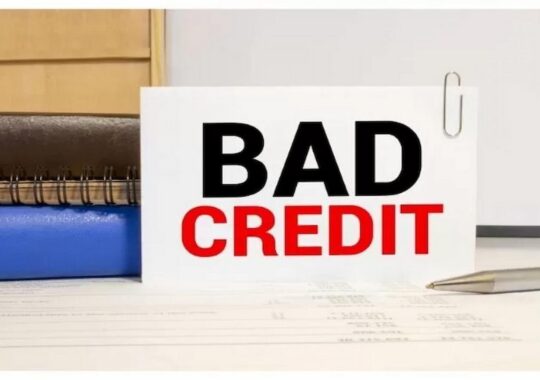Need help with bad credit but in need of a loan? Understanding the nuances of loan agreements and terms is crucial. This comprehensive guide explains what you need to know about securing small loans with bad credit.
Securing a loan with poor credit can be challenging but achievable. Understanding loan agreements and terms is crucial in finding a small loan that fits your financial needs and helps you rebuild your credit. This guide will walk you through the essential aspects of loan agreements for bad credit, from interest rates to repayment terms, empowering you to make sound financial decisions. By breaking down the complex language of loan documents and explaining what to watch for, we aim to simplify the borrowing process and help you navigate the financial landscape confidently.
Exploring Loan Terms and Definitions
Before diving into bad credit loans, it’s essential to grasp the basic terminology used in loan agreements. Key terms include:
- Principal: The original amount borrowed, which you will repay over time.
- Interest Rate: The percentage of the loan amount that you will pay as extra to the lender. This rate is often higher for bad credit loans to offset the risk to the lender.
- APR (Annual Percentage Rate): This rate includes the interest rate plus any additional fees, giving a more comprehensive picture of the loan’s cost.
- Term: The repayment period of the loan is a critical factor. Shorter terms typically result in higher monthly payments but reduce the total interest paid over the life of the loan.
- Fees: Additional costs associated with the loan, such as application fees, late fees, or prepayment penalties.
Understanding these terms will help you compare different loan offers and choose the one that best suits your financial situation.
Loan Approval and Credit Check
The approval process can be more stringent for small loans with bad credit. Lenders may perform a credit check to assess your financial history. Here’s what to expect:
- Credit Check Types: Lenders may perform a hard or soft inquiry. A hard inquiry can temporarily impact your credit score, while a soft inquiry does not.
- Alternative Criteria: Some lenders use alternative criteria to assess your creditworthiness, such as income, employment history, or bank account status. These can be beneficial if your credit score is low, but you have a stable financial situation.
Be prepared to provide additional documentation to support your loan application and improve your chances of approval.
Interest Rates and APR
Interest rates are critical to any loan agreement, especially for those with bad credit. Lenders often charge higher interest rates to compensate for the increased lending risk to borrowers with poor credit histories. Here’s what to consider:
- Fixed vs. Variable Rates: Fixed interest rates remain the same throughout the loan term, providing stability in your payments. Variable rates can fluctuate based on market conditions, which might lead to lower initial payments but can increase over time.
- Comparing APRs: The APR gives a more complete picture of what you’ll pay over the life of the loan, including fees and other costs. Evaluate APRs from various lenders to identify the most cost-effective option.
A lower interest rate, or APR, can significantly impact the total cost of your loan, so it’s crucial to shop around and negotiate where possible.
Repayment Terms and Flexibility
Repayment terms define how long you must repay the loan and the payment schedule. For bad credit loans, terms can vary widely. Consider the following:
- Monthly Payment Amount: Based on your budget, ensure you can comfortably afford the monthly payments. Loans with longer terms generally have lower monthly payments but higher total interest costs.
- Prepayment Penalties: Some loans charge fees if you pay off the loan early. Avoid loans with prepayment penalties if you plan to repay the loan beforehand.
- Repayment Flexibility: Look for lenders who offer flexible repayment options, such as deferred payments or adjustable payment schedules, which can help if you encounter financial difficulties.
Understanding these aspects will help you choose a loan that aligns with your financial situation and repayment capabilities.
Fees
Loan agreements often include various fees that can add to the overall cost of borrowing. Typical fees to watch for include:
- Origination Fees: The lender charges these fees for processing the loan application, typically a percentage of the loan amount.
- Late Fees: Charges incurred if you miss a payment or pay late. These fees can add up quickly and affect your financial stability.
- Prepayment Fees: Costs associated with paying off the loan early. These fees are designed to compensate the lender for the lost interest income.
When reviewing loan agreements, ensure you understand all applicable fees and factor them into your decision-making process.
Impact on Credit Score
Securing a loan with poor credit can negatively impact your credit score. Consider the following:
- Credit Improvement: Making timely loan payments can positively impact your credit score over time, helping you rebuild your credit history.
- Credit Risks: Failing to make payments or defaulting on the loan can further damage your credit score, making it even harder to secure credit in the future.
Carefully manage your loan to ensure it contributes positively to your credit profile and helps you achieve your financial goals.
Conclusion
Understanding loan agreements and terms is vital when securing small loans with bad credit. By familiarising yourself with key terms, interest rates, repayment options, fees, and the impact on your credit score, you can make informed decisions and find a loan that meets your needs. Take the time to review and compare different offers, and don’t hesitate to ask questions or seek advice if needed. With the right approach, you can navigate the borrowing process successfully and work towards improving your financial situation.






